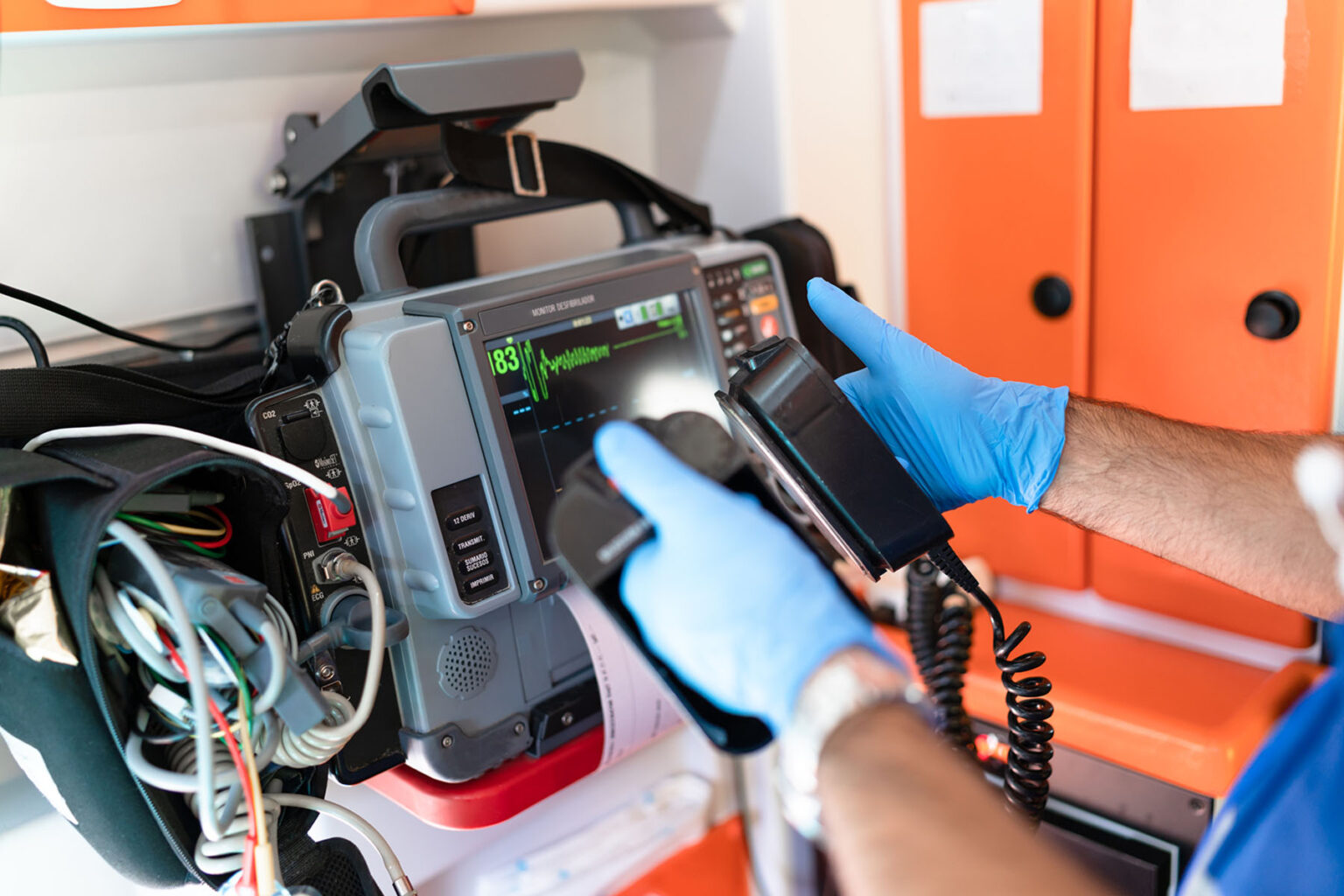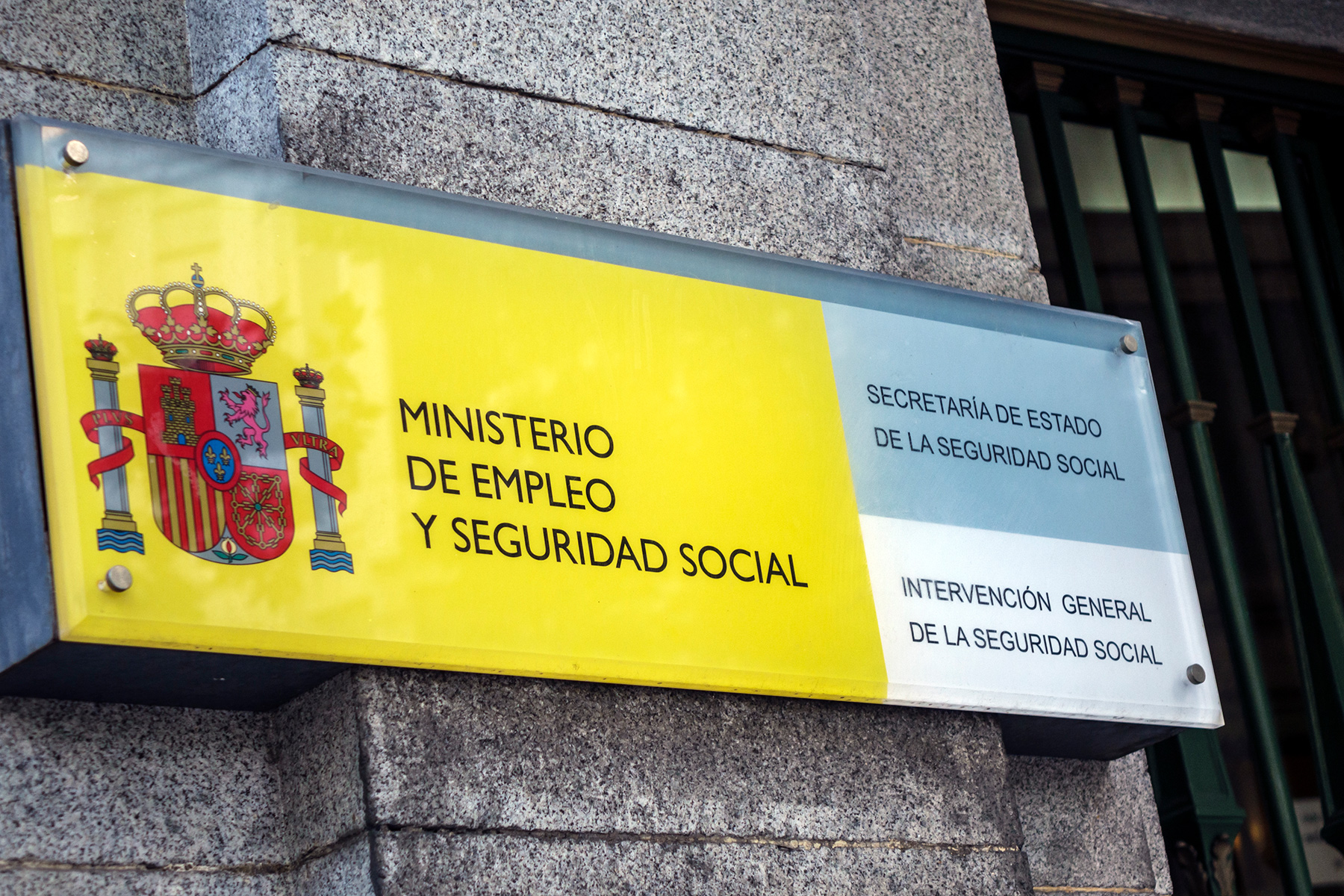When moving to Spain, you’ll need to consider whether you need health insurance to cover your needs. This is particularly important if you need proof of medical coverage for your visa application, have children, or are retired.
Everyone living and working in Spain can register for free public healthcare. Although the country has (almost) universal medical coverage, many local and international residents supplement it with private health insurance (serguro de salud privado). This provides better and faster access to treatment, plus extra coverage for services such as dentistry and mental healthcare.
Continue reading to find out about health insurance in Spain, how you’re covered for public services, and when you’ll need private provision.
Allianz Care
Allianz Care is a world leader in providing international health insurance. Their various premiums provide professionally designed solutions for a variety of expat lifestyles. So, wherever your life takes you, make sure you have the right health protection for you and your family with Allianz Care.
Health insurance in the Spanish healthcare system
The Spanish healthcare system is a universal model, known as the National Health System (Sistema Nacional de Salud – SNS).
Social security payments fund the SNS, rather than a separate insurance scheme. Employees who make social security contributions and their dependents are covered for public healthcare. The following people can also access services for free:
- Minor children under the age of 15
- Students under the age of 26
- Recipients of certain state benefits
- Retirees with a state pension
- Spouses and partners of those registered for social security, including those who are separated or recently divorced

Residents who are not eligible can sometimes access medical care through a pay-in scheme known as Convenio Especial (Special Agreement). More on this later.
Spain also has a range of private insurance available. Many residents supplement their coverage with private health insurance, which provides wider access to dental care, mental health services, and more.
Do I need private health insurance in Spain?
Although most people are covered with public health insurance through social security payments, there are situations where you might require private health insurance. For example:
- For supplementary coverage for services that public health insurance doesn’t cover
- When applying for a visa that requires evidence of medical insurance
- You’re a non-EU resident who doesn’t yet contribute to the Spanish social security system
- You’re an early retiree without an S1 form (more on that below)
- You’re staying short-term in Spain
Can foreigners use the SNS?
Some foreigners in Spain can access SNS healthcare for free. This depends on your nationality and how long you have been in the country.
How does Spanish health insurance work for EU/EFTA nationals?
Expats who have state health insurance in another EU or EFTA country can access medical care as Spanish nationals with their European Health Insurance Card (EHIC).

It’s important to note that some national health insurers will only cover the costs of your medical care in another EU country for a limited period of time. If that is the case, you must register with the SNS and get a Spanish Health Card, or take out private medical insurance.
If you are staying for less than two years or retiring in Spain while collecting a state pension elsewhere, you must fill out an S1 form. This entitles you to health coverage during your residence in the country.
How does health insurance in Spain work for Non-EU/EFTA nationals?
Expats from outside the EU/EFTA region can access Spanish healthcare using the travel insurance that they’ve taken out as part of their visa application.
However, if you’re planning to relocate to Spain for a longer period of time, you must register with the SNS or take out private health insurance.
What happens if I don’t have health insurance in Spain?
Those not covered by health insurance (e.g., undocumented migrants) can access the healthcare system but are likely to pay up to 100% of any costs of medical procedures. They must also pay at least 40% of the costs of any medication prescribed to them.
Who can access SNS healthcare?
Before we dive into the details below, here’s a quick overview of who needs what type of health insurance:
| What is your status? | Can you access public health insurance? | Do you need private health insurance? |
| Employee of a Spanish company | Yes, you are automatically covered through social security contributions. You should first register with your local health center to get your TSI. | No, but it is useful if you wish to reduce wait times or access a broader range of services. |
| Employee of a foreign company | Yes, your employer should sign you up with Spanish social security, or you’ll need a certificate to show you’re covered by a bilateral agreement. You can also register as a freelancer (autónomo) and manage your own contributions. | No, but it is useful if you wish to reduce wait times or access a broader range of services. |
| Job seeker | EU/EEA/Swiss citizens receiving unemployment benefits can transfer their healthcare rights to Spain. Without benefits, you must contact your health insurance company and check if your current rights grant you an EHIC. Unemployed citizens from other countries may be able to access healthcare through the Convenio Especial. | Yes, if your benefits do not cover you for the SNS or you are not eligible for the Convenio Especial. |
| Student | Yes, through your EHIC if you are from a EU/EEA country, and through your GHIC if you are from the UK. If you don’t have an EHIC, you can use the S1 form to transfer your existing medical benefits. Others must check if Spain has a bilateral healthcare agreement with their country or buy private health insurance. | Yes, if you are a non-EU/EEA student from a country that doesn’t have a bilateral healthcare agreement with Spain. |
| Retiree | Yes, if you are a citizen of a EU/EEA country, by filling out the S1 form and getting your healthcare rights transferred. If not, you may need to join the Convenio Especial or get private insurance. | Yes, if you do not have an S1 form and cannot access the Convenio Especial. |
The SNS: public health insurance in Spain
Spain has had public health insurance through its national health system, the SNS, since 2018. This system offers all legal residents, regardless of age or medical history, access to public health services.
To access these services, you need to be a legal resident, enroll with the National Social Security Institute (Instituto Nacional de la Seguridad Social – INSS) unless exempt, and obtain a public health card (TSI).
Who can register for Spanish public health insurance?
You can register for SNS health coverage if you are:
- A resident in Spain – you should be a resident for more than 183 days a year.
- Registered with the local municipality (empadronamiento)
- Registered with social security
Children under 18 are automatically eligible for public healthcare, regardless of their nationality.
In cases where you can’t or no longer make social security contributions, you may be covered for public healthcare by the Convenio Especial (discussed below).
Public health insurance for employees
Employees in Spain are entitled to SNS healthcare through social security payments. Employers register their workers with the social security system and deduct contributions directly from their salaries. So, as soon as you’re employed, you can access public healthcare.

Meanwhile, if you’re working for a foreign company based outside Spain, the situation might be trickier – check with your employer to find out their health insurance arrangements. EU citizens and people with EHIC/GHICs can use these in Spain, otherwise you may need to register as an autónomo and organize your own social security payments.
Some employers in Spain provide private health insurance as an additional benefit.
Medical insurance for freelancers and entrepreneurs
Freelancers can access the SNS, but they must enroll themselves in social security first. They do this by signing up to the Special Regime for Self-Employed Workers (Regimen Especial de Trabajadores Autónomos – RETA).
You should sign up in the period 60 days before starting your company. It’s possible to register online through the Spanish social security portal. Once you’re registered, you’ll make a monthly contribution, just like other workers.
Do you have rights to state health insurance if you are unemployed?
If you are unemployed, you can benefit from the pay-in scheme Convenio Especial (special agreement). It is essentially a low-cost insurance scheme that provides coverage in exchange for a low monthly fee. You can choose to pay a minimum, average, or maximum contribution base.
The Convenio Especial is suspended during periods of normal employment where your contributions will be met through your salary.
Pensioners and their health benefits in Spain
Pensioners in Spain who have contributed to the Spanish social security system can receive healthcare through the SNS free of charge. Their coverage should continue automatically.

However, if you haven’t been been making contributions to Spanish social security, perhaps because you’ve moved to the country for retirement, you can still access the SNS. You have three options:
- Complete an S1 form to transfer your health insurance rights to the Spanish system.
- Sign up for the Convenio Especial and make a monthly payment to access state healthcare. You may do this if you have been living in Spain and registered on El Padrón for at least a year.
- Take out private or international health insurance. Cigna Global provides a plan tailored specifically to senior expats.
For more information on senior healthcare in Spain, check out our dedicated article.
Spanish public health insurance for students
Students under 18 may access public healthcare in Spain. If you’re a student under 26 and your parents are enrolled in social security, you can also access free healthcare via the SNS.
EU and EEA students can access necessary public healthcare in Spain with their EHIC, while British students can use their GHIC.
However, students who do not have an EHIC must get private health insurance. Some companies specialize in healthcare plans for international students, so it’s worth shopping around.
Coverage for tourists and short-stay visitors
For visitors and short stays, EEA and Swiss citizens can typically use their EHIC. UK citizens can use their GHIC. Non-EEA citizens should get insurance from a provider with an international scope, like Cigna Global.
Asylum seekers and refugees
Asylum seekers and refugees have full access to SNS healthcare, the same as Spanish nationals and residents. Your white card (resguardo de solicitud de protección internacional or tarjeta blanca) or red card (tarjeta roja) prove your entitlement to services.
What does Spanish public health insurance cover?
| Service | Is it covered? | Note: |
| Doctors and medical specialists | Yes | |
| Emergency care, hospital stays, and at-home treatment | Yes | |
| Prescription medication | Partially | The SNS covers 40–60% of the cost, depending on your earnings. Retirees only pay 10% of their medication fees. |
| Mental healthcare | Yes | |
| Maternity care | Yes | |
| Dentistry | No | |
| Specialized vision care | Yes | |
| Sexual and reproductive health | Partially | If you have a prescription from a family doctor, your costs are partially covered. Treatment without a prescription is not covered. Insurance for fertility treatments differs by region of Spain, so it’s good to check with your doctor first. |
| Vaccinations | Yes | Mandatory vaccines are covered, optional ones are not. |
| Alternative medicines and complementary therapies | No | |
| Treatment abroad | Maybe | The SNS only covers emergency medical costs in EU member states. |
How to register for the SNS in Spain as an expat
What to do before your move
If you’re an EU/EEA/UK resident, your first step to make sure you can access healthcare in Spain is to get an EHIC or a GHIC, if you don’t have one already. You should be able to obtain one from your health insurance company or healthcare authority in your country.
You can also fill out an S1 form with your current health insurance provider. The certificate delivered will greatly facilitate the transfer of your rights. In many instances, that certificate is even necessary for certain types of visas.

All internationals moving to Spain for longer than three months also need a Foreigner Identity Number (Numéro de Indentidad de Extranjero – NIE). Your NIE allows you to access to social security, including Spanish healthcare.
You can apply for your NIE before you move at a Spanish embassy or consulate or online. It’s also possible to get one at an immigration office once you’ve arrived.
How to register for health insurance once you are in Spain
Once you’re in Spain, you should register with the town hall (empadronamiento). This means you’re a recognized resident. The process may vary in different regions of the country.
You’ll then need a social security number. For many expats, their employer will handle the process. However, if you haven’t received one, you can sort this out through your local Social Security Office (Oficina del Instituto Nacional de Seguridad Social).
You must first download a certificate that states you are eligible for medical care. You can do that by:
- Visiting the Social Security e-Office
- On the top left of the page, select the option Citizen > Healthcare > Healthcare. Application for recognition of entitlement (as an insured person)
- Select your preferred identification method (this will open a new portal “Tu Seguridad Social”)
- Underneath the section ‘Healthcare’, you will find the option to download your certificate
After that, you can apply for a Spanish health card at your local primary healthcare center (centro de atención primaria – CAP).
What documents will you need to register for Spanish public health insurance?
When applying for your Spanish health card, you’ll need the following documents:
- A valid passport or ID
- Proof of registration in El Padrón
- Healthcare certificate
Other documents depend on your situation:
- Workers‘ employers will typically register them with social security, which grants access to the SNS, but it’s worth double-checking.
- International students will obtain assistance from their university, but in any case, they cannot register for health insurance without first having their student visa and their proof of enrollment to their higher education institution.
- Eligible retirees, students, and job seekers will need their S1 form.
- Asylum seekers must show proof of their asylum application, such as the tarjeta blanca or tarjeta roja.
Health insurance card – Tarjeta Sanitaria Individual (TSI)
When you register with the SNS, you get an Individual Health Card (Tarjeta Sanitaria Individual – TSI). This serves as proof of your entitlement to Spanish public health insurance.
Your TSI will be sent to your home within two or three weeks of filing your application with the CAP. Be sure to keep it on you at all times, so you are able to present it whenever you use a public health service or purchase a prescription from a pharmacy.
As the TSI allows you free healthcare at the point of service, there is no need to pay for services and then request reimbursement.
Registering with an SNS doctor in Spain
The TSI allows you to register with an individual doctor or health center within your local healthcare district. To see any other specialists, however, you must be referred by your family doctor.
For information on how to register with a doctor in Spain, read our dedicated article.
Private health insurance in Spain
Private health insurance is widely popular among expats and temporary residents who don’t want to – or can’t – rely solely on public healthcare. Around 26% of the Spanish population has some form of private medical coverage.
You will require private health insurance for your visa application if your country does not have a reciprocal health agreement with Spain.
The advantages of getting private health insurance coverage in Spain
One of the advantages of private medical insurance is that you have easier and faster access to healthcare. You can skip waiting lines and don’t need a referral from a family doctor. In addition, some insurance companies cover additional procedures that are not covered by public healthcare.
Best of all, you can easily choose a doctor with a strong grasp of English if you’re not fluent in Spanish. Your chosen insurance company should have a list of providers and the languages they speak, and you can find a list of doctors at your local embassy or consulate.
Cigna Global
Enjoy peace of mind while living in Spain with Cigna Global’s long-term international health insurance plans (12+ months). Get tailored coverage, direct billing with many providers, complex case management, and global care on demand, with access to a network of 1.5+ million doctors, specialists, and therapists.
How do you apply for private medical insurance in Spain?
If you are looking for private insurance in Spain, whether for full or supplementary coverage, all you need to do is find a health insurance plan that meets your requirements and register with the company.
It’s a good idea to compare offers, as policies can vary company to company.
You may find that your employer offers private health insurance as part of your benefits package, so it’s worth inquiring before shopping for a plan. If they do, check with them to find out how much of the monthly premium they cover, and whether it’s also valid for your dependents.
How to choose the best Spanish health insurance provider
When deciding on an insurance company, you should choose one that offers the coverage you need and is accredited. As usual, it’s important to thoroughly research your medical insurance options and seek as much advice as possible before committing to a specific plan. International expats should check if their package provides the same protection in Spain as it does back home.
When choosing a medical insurance provider, you should make sure they are accredited by the Official Colleges of Physicians (Consejo General de Colegios Oficiales de Médicos – CGCOM) in Spain. This is the official body that regulates the Spanish medical profession.
When choosing between medical professionals, it might be worth comparing your options on a portal such as SaludOnNet.
Private insurers that work in Spain and support expats with English-language services include Sanitas. They provide medical certificates for visa applications in Spain, so you’ll have coverage as soon as you arrive.
Meanwhile, if you’re a newcomer to Spain or need supplementary insurance, it might be worth taking out an international health insurance plan. These can fill coverage gaps and are useful if you plan to travel abroad regularly, as they provide access to healthcare services across borders.
Bear in mind that international policies are suitable only for supplementary healthcare coverage in Spain.
APRIL International
Looking for expat-friendly health insurance in Spain? APRIL International has a long history of providing health coverage tailored to the unique needs of the expat lifestyle, ensuring peace of mind for you and your family. Whether you’re relocating to Spain or simply staying short-term, APRIL International has the right policy for you.
How much does Spanish health insurance cost?
Is the SNS really free?
Healthcare services listed in the table in the section about public health insurance coverage are free at the point of use. However, you will likely pay part of prescription charges, and you should factor in the cost of social security payments. Freelancers can check these online using an online calculator.
You can find out more about healthcare costs in our article on Healthcare in Spain.
How much does private health insurance cost in Spain?
Generally, private insurance costs on average between €50–200 a month, depending on the coverage plan. If you need additional specialized care or regular treatment, your premium can go up. Some insurance providers do not work with monthly fees, but allow you to only pay for the treatment you need.
You can compare private health insurance companies and get free medical insurance quotes on our health insurance comparison pages.
How much does international health insurance cost?
If you need an international health insurance policy for temporary coverage, you can generally expect to pay more than a typical Spanish health insurance policy.
These usually charge according to age, coverage level, and pre-existing conditions. They are usually higher for older individuals and for broader coverage. Prices vary greatly depending on these factors and whether you want it to cover you in Spain or worldwide.
Useful resources
- Ministry of Health – the official government website with information on Spanish healthcare
- Seguridad Social – the official website of the Spanish social security authorities
- Your Europe – the official EU website with information about the European Health Insurance Card













